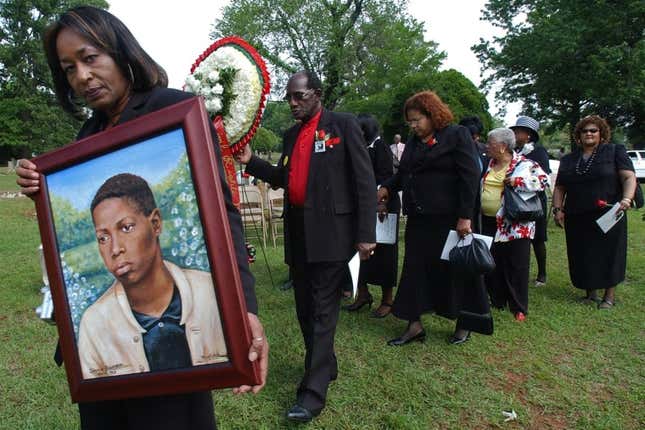
On Sept 15, 1963, four Black girls were killed in a church bombing planned by the Ku Klux Klan. Year after year, we remember the innocent lives that were snatched away too soon but did you know there were two boys who also died as a result of this tragedy?
Right before Youth Sunday service at 16th Birmingham Baptist Church, 14-year-olds Addie Mae Collins, Cynthia Wesley, Carol Robertson and 11-year-old Denise McNair were killed after the Ku Klux Klan planted dynamite under the staircase of the church. The impact of the explosion completely obliterated the women’s restroom in the basement where the four girls were. A fifth girl, the sister of Ms. Collins, was discovered still alive in the rubble but suffered permanent injuries to both her eyes.
For decades, the senseless killing of these young girls was remembered as a reign of racist terror that fueled the fire behind the fight for civil rights. However, the terror didn’t end at their death.
Two Black boys, 16-year-old Johnny Robinson and 13-year-old Virgil Ware were killed in the aftermath, just six hours later.
Read more from NPR’s interview with Robinson’s brother:
Johnny was hanging around with a few other black teenagers near a gas station on 26th Street. It was a tense scene. White kids drove by, waving Confederate flags and tossing soda pop bottles out car windows. They exchanged racial slurs with Robinson and his group.
Witnesses told the FBI in 1963 that Johnny was with a group of boys who threw rocks at a car draped with a Confederate flag. The rocks missed their target and hit another vehicle instead. That’s when a police car arrived. Officer Jack Parker, a member of the all-white police force for almost a dozen years, was sitting in the back seat with a shotgun pointed out the window. The police car blocked the alley.
“The crowd was running away and Mr. Robinson had his back [turned] as he was running away,” Gillis says. “And the shot hit him in the back.”
Ware, on the other hand, was riding with his brother on a bike when he was targeted by a group of white boys who falsely identified him as another Black boy who threw a brick at them earlier. One of the white teens pulled the trigger on his revolver to “scare” him but ended up sending a bullet into Ware’s chest and face.
Certainly the chaos surrounding the bombing drew most of the nation’s attention but it seemed that it allowed for the lives of these two young men to be pushed to the background. Who knows what other innocent Black person was killed that day?
“People don’t understand the ripple effects that these acts of terror have on our community. It didn’t just stop with the church. There were impacts felt throughout different parts of the city, and those stories are important to tell, as well,” said DeJuana Thompson, president of the Birmingham Civil Rights Institute via NBC News.